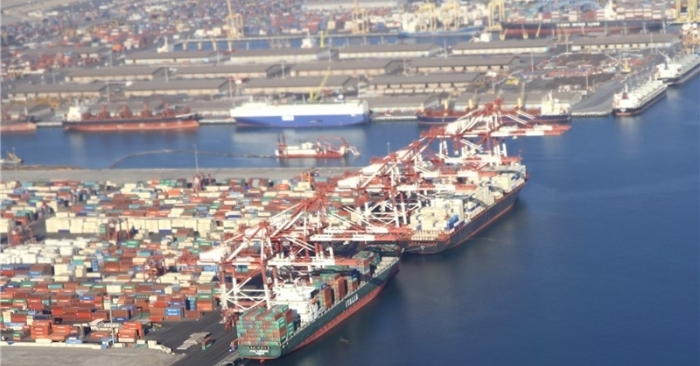Cargo routed via Iran is always under sanction: MD of Global Express
The Port is a backbone in New Delhi's efforts to bypass Pakistan and create a direct trade route to Central Asia.

In a major development with implications for India’s regional connectivity strategy, the United States has revoked a 2018 sanctions exemption for Iran's Chabahar Port, effective from September 29.
The move, announced by the U.S. State Department, is part of Washington's intensified maximum pressure campaign to isolate the Iranian regime and disrupt illicit financial networks.
Shankar Shinde, Managing Director (MD) of Global Express Multilogistics, said on a telephonic interaction to Indian Transport and Logistics News, "Chabahar by itself as a port will not be under sanction, but you know any cargo routed via Iran is always under sanction. So that port will always help us, but if they sanction the port also, it means the operations from the port will not go."
The exemption, originally granted under the Iran Freedom and Counter-Proliferation Act (IFCA), had previously allowed India to continue developing the port's Shahid Beheshti terminal for humanitarian and reconstruction aid to Afghanistan.
However, the revocation now threatens to expose Indian companies and personnel operating at the port to U.S. penalties.
For India, the strategic implications are substantial. The Chabahar Port is a backbone in New Delhi's efforts to bypass Pakistan and create a direct trade route to landlocked Afghanistan and Central Asia.
India has invested over $120 million in the project since 2018 and, in May 2024, signed a landmark 10-year contract to operate the port, its first such overseas management deal.
As per the news reports, this development now puts that investment and future plans including linking the port to Iran's railway network and increasing its cargo capacity at significant risk.
The decision also complicates India's diplomatic balancing act between its deepening strategic partnership with the U.S. and its long-standing economic and political ties with Iran.
Furthermore, it casts a shadow over India's role in the International North-South Transport Corridor (INSTC), a multi-modal route designed to connect India, Iran, Russia, and Europe.
Geopolitically, the U.S. action could inadvertently benefit India's regional rivals. Chabahar is widely considered a strategic counterweight to China's growing influence through its development of the Gwadar Port in Pakistan.
By limiting India's access and operational freedom, the move could strengthen China's position and its Belt and Road Initiative (BRI).
When asked about the potential benefits for Gwadar Port if India's presence at Chabahar is cut down, Shinde said, "Commonwealth of Independent States (CIS) cargo which goes from the other countries will always have better access than the Indian cargo. So they will have got an opportunity."



